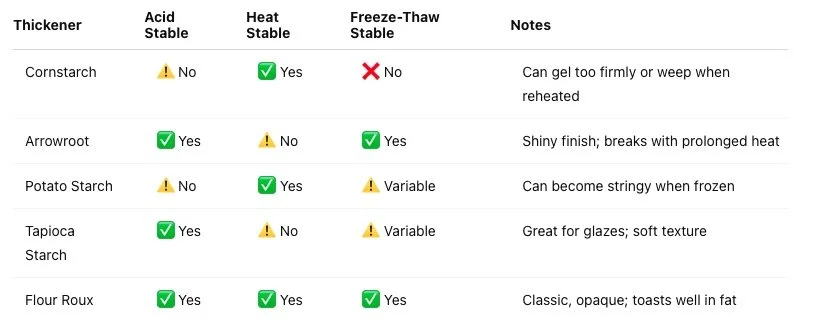The Ultimate Broths for Braising Tofu and Plant Proteins
In plant-based cooking, broth isn’t background noise — it’s the entire soundtrack. A well-built broth infuses tofu, tempeh, or dried bean curd with richness, umami, and soul. It’s where flavour, nutrition, and tradition come together.
Whether you’re braising tofu cubes, simmering yuba rolls, or slow-cooking tempeh, this guide teaches you how to build layered, deeply satisfying broths — and adjust them to match your mood, season, or cultural craving.
🔧 The Base Broth Method
This flexible, 6-part structure forms the base of all great braises:
Fat → Carries flavour compounds and builds richness.
Aromatics → Onion, garlic, ginger, leeks, or shallots to start the base.
Spices → Toast or bloom in fat for deeper aroma and flavour.
Umami Builders → Add miso, mushroom, tomato paste, soy sauce, fermented bean paste.
Acid → A splash of vinegar or citrus brightens and balances.
Liquid → Water, mushroom stock, coconut milk, kombu dashi, or veg broth.
🔬 Science Bite: Fat dissolves volatile compounds in spices, creating a longer-lasting aroma. Deglazing after browning tomato paste lifts flavour-rich fond (caramelised sugars and amino acids) into the broth.
🧠 Why it matters: Without meat’s gelatin or fat, plant-based broths need technique to carry flavour. Layering these six elements gives your tofu a rich, braise-ready base.
🌏 Global Broth Variations
Each variation below uses the Base Broth Method, but swaps elements to highlight regional flavour profiles.
🧄 Vietnamese-Inspired Lemongrass & Ginger Broth
Aromatics: Ginger, lemongrass, shallot
Spices: Star anise, white pepper
Umami: Soy sauce, mushroom powder
Acid: Lime juice
Fat: Neutral oil or sesame oil
Liquid: Mushroom or kombu stock
✨ Light, fragrant, perfect for tofu with bok choy and vermicelli noodles.
🟤 Japanese-Inspired Umami Mushroom Broth
Aromatics: Green onion, garlic
Umami: Dried shiitake, kombu, soy sauce, miso (added off heat)
Spices: Optional sansho pepper
Acid: Rice vinegar or yuzu
Fat: Sesame oil
Liquid: Water + shiitake soaking water
🔬 Science Bite: Kombu is rich in glutamates; shiitake in nucleotides. Together they create umami synergy — a deeper savouriness than either alone.
🟠 Indian-Inspired Warming Curry Broth
Aromatics: Onion, garlic, ginger
Spices: Turmeric, cumin, mustard seed, curry leaf
Umami: Tomato paste, fenugreek
Acid: Lemon juice
Fat: Coconut oil or mustard oil
Liquid: Water or coconut water
🧠 Note: Blooming mustard seeds in oil prevents pungent isothiocyanate formation by deactivating the enzyme myrosinase before it reacts with water.
🔴 Mediterranean-Inspired Tomato & Thyme Broth
Aromatics: Onion, garlic
Spices: Smoked paprika, thyme
Umami: Tomato paste, olive tapenade
Acid: Red wine vinegar or lemon juice
Fat: Olive oil
Liquid: Water or light veg stock
🔬 Science Bite: Browning tomato paste initiates the Maillard reaction — a cascade of chemical changes between amino acids and sugars that deepen savoury complexity.
🥥 Thai-Inspired Coconut & Galangal Broth
Aromatics: Galangal, shallot, garlic
Spices: Makrut lime leaf, coriander seed, Thai chilli
Umami: Soy sauce, mushroom powder
Acid: Lime juice
Fat: Coconut milk
Liquid: Light mushroom stock or water
🧠 Tip: Simmer gently to prevent coconut milk from splitting. High heat can destabilise its emulsion.
🧪 Troubleshooting Broth Flavour
Too Flat? Add umami (soy, miso, tomato paste, mushroom powder)
Too Bitter? A splash of acid or a pinch of sugar balances
Too Salty? Dilute with water or add mild veg (zucchini, carrot)
Too Thin? Simmer to reduce or add a slurry (see below)
🧠 Pro Tip: Add fresh herbs and zest off heat to preserve aromatic oils. High heat evaporates delicate volatiles.
🧪 Thickener Stability Table
🧠 Tip: Modified starches (e.g. pregelatinised or acetylated) offer better reheating consistency, but may not be available in home kitchens.
♻️ Don’t Waste Your Scraps
Add depth using clean, flavourful scraps:
Use: Onion skins, herb stems, mushroom stalks, tomato ends
Avoid: Cruciferous veg (broccoli, cauliflower), starchy scraps (potato), citrus peels — they can overpower or cloud the broth
🧠 Tip: Onion skins contribute both golden colour and antioxidant quercetin.
🍲 Serving Ideas for Brothy Braised Tofu
Over Rice: Let broth soak into grains like brown rice, jasmine, or millet.
Bowl Meals: Layer greens, tofu, grains, and sauce for a nourishing bowl.
Soup-Style: Add noodles, more veg, or tofu puffs for a one-pot meal.
Crusty Bread: Mop up broth with toasted sourdough or flatbread.
Reheat & Reinvent: Leftover broth makes a great soup base, grain cooker, or pasta sauce starter.
🧈 Pro Tip: Blend silken tofu with any finished broth for creamy soups, dips, or sauces that pack protein and flavour.
🌱 Final Takeaway
Learning to build broth means learning to speak the language of flavour, without shortcuts or meat-based crutches. You don’t need bones to make boldness, or cream to make comfort. You just need to understand how fat, aroma, umami, acid, and liquid work together.
Master this, and you’ll never settle for bland tofu again.
Let every simmer be an act of care for your food, your body, and the planet.
🔗 Related Reads:


